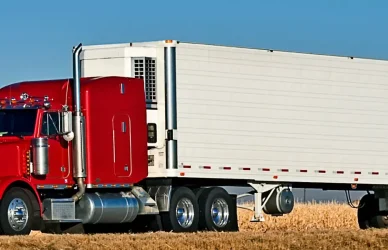Alabama is making strides towards its first renewable diesel facility in Mobile, leveraging the state’s bountiful soybean harvest to create low-carbon fuel. Not only is this a groundbreaking move for Alabama’s renewable energy sector, but the produced fuel can also serve as a direct replacement for traditional petroleum diesel. This could be a game-changer for the state and beyond, paving the way for a greener, cleaner future.
Alabama Gov. Kay Ivey, Mobile County Commissioner Merceria Ludgood, and Mobile Area Chamber of Commerce President Bradley Byrne came together for the exciting commissioning event at Vertex Energy Inc. The event included a ribbon-cutting ceremony.
“By sourcing feedstock locally within our own state, Vertex fosters economic growth opportunities from farm-to-facility and offers low-carbon fuel products that contribute to a cleaner environment, not only here in our beautiful Alabama, but across the nation where these products are sold,” Ivey said.
Vertex, a leading energy firm, has transformed a former Shell refinery into a cutting-edge renewables site. The $115 million conversion project was launched last year and is set to revolutionize the industry. Vertex CEO Benjamin Cowart noted that the renewable diesel produced on the site will help the state move in a new direction, significantly reducing emissions.
“The opportunity to bring this kind of innovation to my hometown and the state of Alabama is incredibly meaningful. I believe this is just the beginning as we progress on our commitment to a cleaner environment by creating a sustainable growth path for the energy transition,” Cowart said.
A Vertex company announcement stated, “Alabama’s soybean farmers will play a crucial role in supplying the feedstock, along with other suppliers across the country. The collaboration between Vertex and these suppliers is expected to help strengthen the local agricultural sector and help foster a stable transition to renewable energy sources.”
The new facility will use soybean oil as its main feedstock while also being able to adopt other organic waste oils in the future.
Another development in the field involves a letter from Clean Fuels Alliance America and four other trade associations urging the EPA Administrator to increase the volume of biomass-based diesel and overall advanced biofuels in the Renewable Fuel Standards for 2023-2025. The letter argued that the current production of biodiesel, renewable diesel, and sustainable aviation were being underestimated by the EPA.
EPA also listed proposed volumes that “are simply inconsistent with the investments our industries have made and plan to expand production and commercial availability of these fuels by 2025. We encourage you to ensure adequate supply and availability of these low-carbon fuels by substantially raising the biomass-based diesel and associated overall advanced biofuel volumes” when finalizing the RFS standards this year, the letter urged.
The American Short Line and Regional Railroad Association, the Association of American Railroads, and the National Energy & Fuels Institute, have also signed the letter.
“Sustainable, low-carbon, domestically produced liquid fuels like biodiesel, renewable diesel and Bioheat fuel are commercially viable today and have sufficient resources to scale up rapidly,” the letter stated. “Our industries need these fuels to decarbonize air transport, long-haul shipping and trucking, and home heating, and meet the needs of our customers and supply chain partners.”
Source: Transport Topics











